Let me get something out of the way first: I get it. I understand. I know that 47% of the country pays no income tax and I am fully aware that that is unfair. I’m part of that 53% of taxpayers and I find it infuriating as well. We exist in a system that allows half of the country to vote against the other half’s best interests. Half of the country can vote in ways to ensure that the other half pays bills that they don’t have to pay. It’s completely and utterly imbalanced and so far from what a free and just society would do as to be laughable.
That said, I propose a simple hypothesis that I think most people would agree with: We only change this disparity by getting more people to agree with us than disagree with us.
Accepting my hypothesis, let’s look for a moment at how we currently discuss taxes in America when the debate is between the left and the right. The left says we need to “pay our fair share” and we respond indignantly that “we already are! It’s you that aren’t!” The truth of our reply aside, our ability to get people to agree with us is not helped with this tactic. For one thing, we are accepting a premise from the outset: taxes are about “fairness.”
I would submit that taxes are not about fairness. Though taxation has in the last century been a tool for social engineering and inflation control, I’d like to believe that taxes exist ideally as a means through which government pays for its ability to exist. Certainly the government is required to apply all laws to all citizens equally, but this isn’t as simple as it sounds. For instance, someone who is under 18 does not in fact have the same rights as someone that is over 18. This isn’t an unfair application of the law however, since the person who is now over 18 was at one time under 18 and was therefore treated exactly the same. But more importantly, using the “fairness” rhetoric simply can’t work when there are opposing points of views about what constitutes fairness. Fairness is subjective and there can be a completely different standard from one person to the next. It doesn’t matter how reasoned a point of view you may have about fairness and equality, there simply will never be enough people willing to vote against what they perceived best interest to make the impact we need.
I believe our problem is that we’re trying to convince this group of people that they are working against someone else’s best interest instead of showing them how they are working against their own. We do this by being addicted to the income tax argument. We can scream all we want about how it’s unfair that the guy earning the bottom 20% of income earners doesn’t have to pay income taxes, but in the end, he’s looking at his monthly income and outgo and saying, “If you want to make this about fairness, I don’t think it’s fair that you want my kids to starve.” While it’s certainly an unreasonable standard for you or me to be responsible for another man’s ability to feed his children, I think it’s a mistake to continue believing we “win” simply by being aware of this truth. No, we can’t be responsible for every person that doesn’t earn enough money to pay for food. But we don’t win by knowing that. We don’t win by telling him that.
Now, if it can be established that current income taxation is unfair but that that isn’t the primary concern of the government and that furthermore, crafting the argument around perception of fairness doesn’t work anyway or worse, works in the favor of our opposition, then what does work? How do we convince people to think differently?
One way we do not do it is by adopting our own version of class warfare.
The truth is, Barack Obama is not the only one who has been engaging in class warfare rhetoric. While “The 53%” movement feels good and feels justified, it’s essentially excluding the possibility that the 47% will want to be involved. It seems to accept the premise that we are enemies working against one another. Sure there will be principled members of that group that are willing to join even though they aren’t technically “in” the 53%. But by and large it’s an exclusionary slogan, born in response to the 99% movement. Basically we became so enraged at the 99% slogan that we created our own class warfare slogan. This simply cannot be the answer. It’s fun, it’s snarky, but it’s very “I’m rubber you’re glue.” It’s playing to base conservative instincts about individual responsibility but it’s applying group responsibility to the 47% that don’t pay taxes and in many cases, alienating them.
I’ve long felt like the 53% movement is an elaborate way of simply giving up. What we’re essentially saying is that the income taxation model is unfair to 5.3 out of 10 of us and so we are going to stand toe to toe against the 4.7 other people and totally say that to them. And we don’t care if it alienates them because screw them, they aren’t paying taxes anyway and on top of that, we can win even if it’s only with 53% of the vote, so who needs ’em?
So far that point of view has not altered our seemingly unstoppable path to statism. While the left continually takes 2 steps forward and 1 step back, we take 1 step forward and 2 steps back. We aren’t winning.
The question for me is, why have we separated income taxes from all other forms of taxation? Is there a reason to ignore other taxes and only focus on the most divisive one? Forget the 53%. Forget the 47%. I’m talking about the 100%. There are taxes that 100% of us pay every day and every single American would be more than happy to have go away.
From gasoline taxes to sales taxes to telephone taxes to hidden taxes (for instance, property taxes which in turn are passed through to the renter) every person in America is paying for government. To be clear, the taxes shift from federal to state to municipal and of course some people get so much money out of the government that even after paying all of their local and state taxes, they still come out ahead. I know this. But once again, knowing this doesn’t change one mind.
The Federalist debate is a debate to be had, certainly. The question of a state’s right to do something versus the federal government’s right to do supersede it, is probably going to be constant topic this election season considering the Romneycare vs Obamacare aspect of the campaigns.
But lets not mix up our philosophical viewpoints here. Yes, a state’s right to do something without federal intervention is important but taxes and an individual’s monthly disposable income knows no borders. The guy trying to feed his kid doesn’t care if the tax he just paid to have a working telephone comes from Montana or from Washington. He just knows he has less money.
Is it perhaps time to consider that there are masses of people who don’t understand how much money they are losing every month to taxation of all stripes?
Watch this video, which is a disgusting display of the mindset of someone that is living off of the government dole:
After recovering from your disgust, think about something other than his complete inability to understand that he’s spending other people’s money. The conclusion that I immediately drew from this is that he instinctually wants to keep as much money as possible to spend on himself. An obvious point, but an important one.
What it tells me is that he’s reachable. He wants to keep “his” money and if he sees an opportunity to do so, he’ll take it. If he sees someone threatening to take it from him by increasing his taxes or even just saying it’s not fair that he doesn’t pay enough, he’ll undoubtedly shut down and be incapable of listening.
The guy in this video infuriates me, but my life is better if he votes the way I do. As much as I think he’s a shiftless, lazy, man-child, the United States of America is better if he votes for the smaller government ticket. So what do I want? Do I want to scold him for not “getting it?” Or do I want to convince him to come to my way of thinking, something which would appear to be very simple to do since, like most normal human beings, he understands the value of being able to choose how to spend his money?
The fundamental question for me is, “Do we believe that low taxes creates prosperity or not?” I know I do. And as such, even though I know there are tons of unmotivated people, we have over-extended unemployment checks going out weekly, there’s medicare fraud, and a number of other things that our tax dollars are being squandered on just so other people can be lazy, in spite of all that I still believe that a lower taxed society will bring about less of all of those negatives.
I think there are millions of people that are on unemployment, have been on it for too long, but are still decent, hard working folks that just can’t find a job and have to feed their kids. Three years after their job loss, we shouldn’t be paying for their lives but what parent is going to opt to not feed their kids? I believe a lower taxed society will help that person.
So while we squabble over the guys that are taking advantage of the system and how much they suck, we do nothing to convince that guy, or others, that they are better off keeping more of their own money, even if it’s at the state level, even if it’s money that they got because they’re cheating the system.
The Democrats found a way to make taxes noble. So much so that some poor sap making a classic joke about lowering taxes was called a smartass by Vice President Biden. That’s because in the Democrat party, and in the 47% that we all get so angry about, taxes are good.
I think priority one needs to be convincing the general public, the poor, the old, those on welfare, those taking advantage of the system, everyone…that taxes are bad. We do this by, instead of constantly putting forth graphs that show the income tax disparity, instead show graphs about how much money is being spent by the lower income earners just to buy groceries. Create visual examples and stirring speeches about how many days a year a person spends working on behalf of their federal, state and local governments. Stop trying to convince people that aren’t paying one tax out of a bajillion that we are a “taxed versus untaxed” society. We’re just one society, and it’s all overtaxed and you could afford to do more if you kept more of the money that’s being taken from you.
Make the people that aren’t paying income taxes aware of the amount of money they could have every month but never see.
Half of our culture no longer puts death and taxes next to each other, no longer understands that Uncle Sam taking your money is a bad thing, no longer understands what angered Robin Hood and what prompted the Boston Tea Party. This half of our culture has actually reached a point that they view taxes as a noble form of patriotism and charity.
We need to start showing them how it’s affecting their lives on a daily basis. We must get people to hate taxes again and look at it as the absolutely minimal necessary evil that it’s intended to be. We don’t get there by scolding them. We get there by teaching them.
We are the 100%.




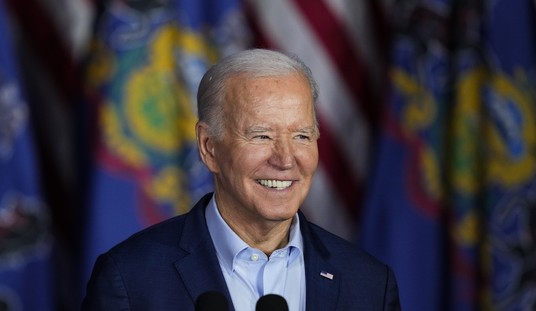
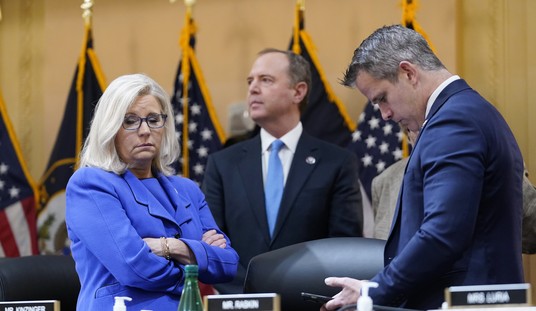

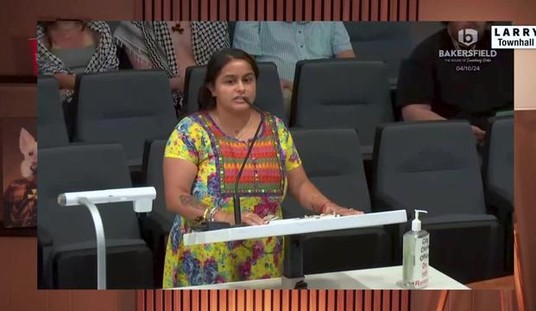


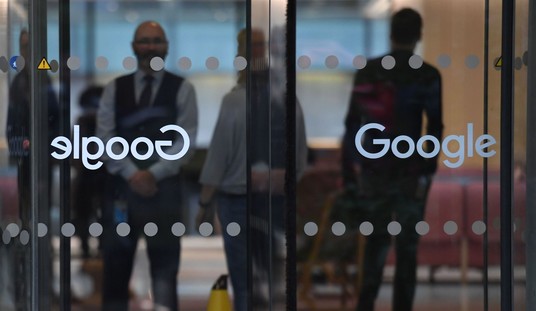

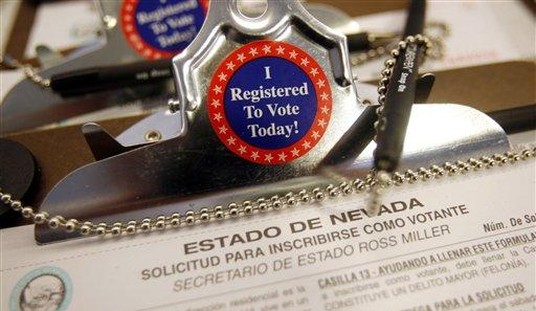

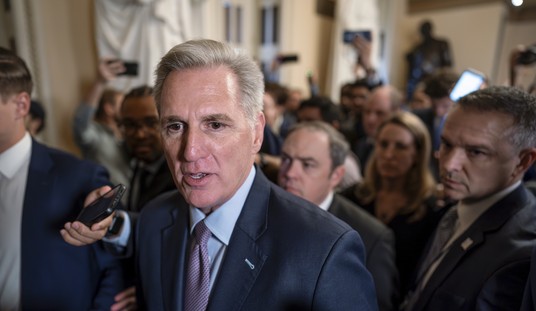
Join the conversation as a VIP Member